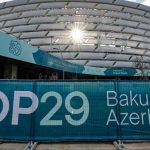The new local cases of the Covid variant are connected to a cluster at a Villawood gym, in Sydney’s southwest, and two schools.It takes NSW’s total number of Omicron cases to 25 cases, spanning 14 local, and 11 from international arrivals. It is understood none of NSW’s Omicron cases have required hospitalisation.Health officials are bracing for more Omicron cases linked to the outbreak that NSW’s top doctor described as a “rapidly evolving situation”.There have been 13 cases of the Omicron Covid-19 strain confirmed in NSW, with at least three people linked to the school and urgent genomic testing underway on more potential infections.Chief health officer Kerry Chant said results of further “likely” cases were due later on Saturday.She said public health teams were working with the National Centre for Immunisation Research to document how transmission had occurred in the clusters and that this information would be shared internationally.“The key pieces of information we need to understand is how easily it spreads, how severe the disease is across all age groups, whether past infection with previous strains protects or modifies the disease severity and how effective our current vaccines are,” she said.There were 337 new Covid-19 cases recorded on Friday and one of them, a student at Regents Park Christian School in western Sydney, was found to have the Omicron variant.It was later revealed that two more students from the Christian school contracted the Omicron variant while genome testing was still underway for a further 10 people. NSW Health said it was concerned the virus had already spread within the community as the student has no overseas travel history or links to people with overseas travel history.It forced the entire K-12 school to be dismissed for the year with all staff and students identified as close contacts and directed to quarantine.Anyone who attended the Sydney Indoor Climbing Gym in Villawood last Saturday at any time from 9am to 4.30pm on November 27 is considered a close contact of an Omicron case and must immediately get tested and self-isolate for seven days, and return a second negative test on their sixth day of isolation.The majority of the daily Covid-19 cases in NSW are still believed to be of the Delta strain.NSW reported 325 cases of Covid-19 and one more death on Saturday morning. Dr Chant said the person who died was a woman in her 50s from southwestern of Sydney who had received two doses of a vaccine and had underlying health conditions before her death in Liverpool Hospital. The daily figures remain relatively stable despite concerns over a new variant.There are 139 people in hospital with Covid-19 across NSW, including 25 patients in intensive care.There is still little known about the Omicron strain, which was first identified in South Africa and which the World Health Organisation last week named as a variant of concern.QLD OMICRON CASEA returned traveller in hotel quarantine in Queensland is likely to be infected with the Omicron coronavirus variant.Queensland Health Minister Yvette D’Ath said genomic testing had ruled out the Delta variant, with more tests underway to determine if the person had the Omicron strain.That person, who spent time in southern Africa, was one of seven new cases reported in Queensland on Saturday.OMICRON SPREADS TO NSW AND ACTHealth authorities in both NSW and the ACT are urgently investigating two separate outbreaks of the Omicron variant.NSW Health confirmed a cluster linked to a Western Sydney school had two more cases confirmed to be the new Covid-19 strain.The Regents Park Christian School cluster now has 13 cases linked to it, with three of those so far confirmed to have contracted Omicron.“Urgent genome testing is underway on a further 10 cases,” NSW Health said in a statement.“NSW Health is urgently investigating the source of infection for this cluster.“The whole school K-12 has now been dismissed for the year.“All students and staff have been identified as close contacts.”NSW Health also said the Sydney Indoor Climbing Gym in Villawood was visited by confirmed Omicron cases on Saturday from 9am to 4.30pm.ACT Health said it was not yet known if the new Omicron case was acquired in the territory or NSW.The individual, who tested positive on Wednesday, is fully vaccinated and had not travelled overseas.Authorities listed four casual contact sites across Canberra and urged anyone who was at these locations to fill out a contact declaration form.Earlier, NSW recorded 337 new cases of Covid-19 and no new deaths, with 140 people in hospital, including 25 in intensive care.NSW Health Minister Brad Hazzard said transmission was always a concern but stressed there was no clarity whether the Omicron variant would be as devastating as Delta.He said the “modest increase” in case numbers was not concerning because hospitals were not being inundated with severe cases.“People are having a free life, working jobs, making money and the quality of life is better,” he said.Premier Dominic Perrottet said the key priority in NSW was keeping residents safe.“We would have expected numbers to be higher after opening up our state … we lead the country on vaccinations,” he said.Of the population aged 16 and over, 94.6 per cent have had one dose of the vaccine, while 92.6 are fully vaccinated.NED-5052-Covid-19-super-variantNSW authorities confirmed one of the Omicron cases was a child who was too young to be vaccinated.NSW Health confirmed the child was staying with their fully vaccinated parents at the Mantra apartments in Chatswood, sparking a seven-day alert from November 23 to 30.Anyone who was at the venue on those dates is considered a casual contact and must immediately get tested and isolate until receiving a negative result.The family arrived on flight QR908 from Doha to Sydney on November 23 and was now isolating in special health accommodation.Urgent genomic sequencing is under way to determine which strain the parents have contracted.“These travellers have not been in southern Africa and NSW Health is concerned transmission may have occurred on this flight,” NSW Health said.Up to 300 tests from people who had been to South Africa, Lesotho, Botswana, Zimbabwe, Mozambique, Namibia, Eswatini and Malawi were being retested as an “extra precaution”, Mr Hazzard said on Wednesday.HOWARD SPRINGS ESCAPEES CAPTUREDThree fugitives who escaped from the Howard Springs quarantine in the Northern Territory have been taken into custody.NT Police confirmed the trio had been located and taken into custody.NT Police alleged they scaled the fence and fled the Centre for National Resilience at 4.40am.All three people tested negative for Covid-19 on Tuesday.Police said inquiries were continuing. The incident is the second time in a week that a returned traveller has escaped from quarantine at Howard Springs. Just last week a 27-year-old male allegedly absconded from the facility and was later found by police on Darwin’s main strip.In January, a 33-year old woman scaled the fence and walked off but was located by police within 15 minutes. NED-5083-Howard-Springs-Escape-Map‘ALL OPTIONS’: NEW CLUE ON BOOSTER CHANGEAustralia’s chief medical officer says while it’s unlikely the country will follow in the footsteps of the United Kingdom in halving the time between second jab and booster shot, all options are on the table.Health Minister Greg Hunt and Professor Paul Kelly have asked the vaccine watchdog to assess whether there was any need for a change to the booster program amid the Omicron variant hitting Australia.It comes as the United Kingdom announced it would halve the waiting time between second and booster shots to three months for eligible adults.As it stands, Australians must wait six months after their second dose of vaccine to get their booster shot.Professor Kelly said there was a need to be “cognisant” of international decisions and evidence, but keep in mind that booster shots make “a lot of sense’ in winter.“We’re more than six months away from winter. We know that respiratory viruses circulate a lot more in winter,” he said on Tuesday.“It’s likely that that’s when we would want the boosters to be actively working.“There are some significant reasons behind the delay of a booster to more than three months, but it’s a balance, and that’s exactly the sort of issues that I discussed this morning with ATAGI and they’ll look at that now.”Health authorities gave government officials advice on Monday to pause the reopening of the country to international students and skilled migrants by two weeks, to allow for more time to understand the risks of the Omicron variant.Health Minister Greg Hunt said the slight delay in Australia’s reopening plan would enable health authorities the time to assess whether changes were needed to the booster program, as well as to learn more about the Omicron variant.Mr Hunt said Australia was “as well prepared as any nation in the world” to deal with emerging variants, with 87 per cent of adults aged over 16 now fully vaccinated.“We’re doing this (pause) out of an abundance of caution, but our overwhelming view is that while it’s an emerging variant, it’s a manageable variant,” Mr Hunt said on Tuesday.“We know that other countries are facing the same challenges, and we know that the US President (is also) going to have a two-week period, which is exactly the advice that Professor Kelly and … Professor Murphy gave the National Security Committee yesterday.“Everybody is working together. Australia’s dealt with challenges, and we’re ready for this. We’re able to deal with this and we want to give Australia that confidence.”Infectious Disease specialist Dr Nick Coatsworth said earlier on Tuesday any decision that ATAGI makes will be “in our best interest”.“They will be safe whenever they get their booster,” he told Sunrise.“My gut feeling is that this is not a bad one compared to what we have seen before.“It’s more transmissible, but probably mild. Let’s wait for more information. We are all doing the right thing.CSIRO director Dr Rob Grenfell said it was a timely reminder that the pandemic was “far from over”.“With regards to whether it’s more infectious, it clearly is because it’s displacing Delta in South Africa,” Dr Grenfell told the Today show.“But is it more serious? We don’t know yet. The South African population is definitely different than our population.“So we’ll have to see what happens in Europe to see (if) it is more severe.”He said it was not premature to be discussing bringing booster shots forward in Australia.AUSTRALIA PAUSES BORDER REOPENINGS Australia’s borders will remain closed for another two weeks for hundreds of thousands of overseas students, migrant workers and refugees.The federal government’s national security committee decided on Monday night to pause Wednesday’s planned reopening until December 15 to buy time to assess the new Omicron variant.Vaccinated travel lanes with Korea and Japan will also not open for two more weeks.It comes after the federal government triggered “additional actions” in light of the potentially more transmissible Omicron variant of Covid-19.Health Minister Greg Hunt said this involved Prime Minister Scott Morrison calling an emergency meeting of the national security committee to be held on Monday.Secondly, a national cabinet meeting will be organised and held within the next 48 hours.“South Africa has a very different situation to us in terms of the demography of the country, a much younger population than Australia, different health system, and a different laboratory network, et cetera.“(It also has) very high HIV rates, which can affect how any virus and any disease can be transmitted, and particularly the severity of illness. So, we don’t … We’re still looking at that.”Prime Minister Scott Morrison called for calm in an appearance on Sunrise as anxieties grow that Omicron will trigger another wave of border closures and lockdowns.“It’s obviously a variant of concern. It’s not first one we’ve had. We’ve had 13 variants of concern,” Mr Morrison said.“I think what is important we stay calm.”SHUTTING BORDERS ‘NOT PROPORTIONATE’ TO OMICRON RISKShutting Australia’s international borders is not warranted experts say, despite the highly infectious nature of the new Covid-19 Omicron variant.Epidemiologist Mary-Louise McLaws also told The Australian that the new strain was still not fully understood.She suggested that until the country reaches at least 90 per cent total population coverage, “quarantine must be supervised for every traveller from every country”.Under Commonwealth orders, all travellers arriving in Australia, regardless of state or territory, who have been in South Africa, Lesotho, Botswana, Zimbabwe, Mozambique, Namibia, Eswatini, Malawi, and the Seychelles during the 14 day period before their arrival in Australia, must enter hotel quarantine for 14 days, irrespective of their vaccination status.All travellers who have been in any other overseas country during the 14 day period before their arrival must travel directly to their place of residence or accommodation and isolate for 72 hours, pending further health advice.All flight crew who have been overseas during the 14-day period before their arrival must travel directly to their place of residence or accommodation and isolate for 14 days or until their departure on another flight that leaves Australia, consistent with the current rules for unvaccinated flight crew.Anyone who has already arrived in Australia who has been in any of the nine African countries within the previous 14 days must immediately get tested and isolate for 14 days, and contact their state health department.SA LATEST TO TIGHTEN BORDERS OVER NEW VARIANTStates and territories across the country moved quickly to reimpose new restrictions after two overseas arrivals tested positive for the highly infectious strain in Australia. In South Australia, all international travellers from high risk countries arriving into the state must undergo 14 days quarantine.Victoria and NSW have ordered all overseas arrivals to isolate at home for 72 hours, as authorities respond with caution to the new Covid-19 variant.The ACT has confirmed any fully vaccinated overseas travellers arriving from countries other than six southern African hotspot countries must quarantine until midnight on Tuesday, November 30. WA Premier Mark McGowan has not ruled out changing the state’s Covid-19 reopening road map, threatening to keep borders closed beyond early next year to keep residents safe.He said the state would continue to have a “cautious approach” with other states, pointing to NSW‘s lack of hotel quarantine scheme for overseas arrivals as a big risk.It comes after Australia suspended flights from South Africa, Namibia, Zimbabwe, Botswana, Lesotho, Eswatini, the Seychelles, Malawi, and Mozambique for 14 days.Non-Australians who have been in those countries in the past two weeks are now banned from entering Australia.NED-3952-Covid-19-VariantsPM SUPPORTS 72-HOUR ISOLATION PERIOD FOR OVERSEAS ARRIVALSScott Morrison says the new Covid variant Omicron is concerning, after moving from a variant of investigation to a variant of concern in 24 hours.The Prime Minister spoke with Daniel Andrews and Dominic Perrottet on Saturday and said he backed their move to introduce a 72-hour isolation period for people arriving from overseas.“These very fast moving issues that will continue as we always have sensible balanced, guided by the best possible medical evidence and medical expert advice,” Mr Morrison said.“But our intention, let’s not forget what the ultimate objective is here in this global pandemic, is to open safely and remain safely open. “I’m quite encouraged by the fact that despite that we still have over 1000 cases on most days in Victoria, Victoria’s health and hospital system is standing up extremely well.“It’s standing up in fact better than what the Doherty Institute modelling suggests.”TOUGHER INTERNATIONAL TRAVEL RESTRICTIONS NOT RULED OUTAustralia’s Trade and Tourism Minister Dan Tehan has refused to rule out tougher international travel restrictions as more becomes known about Omicron.Australia has effectively shut its borders to nine countries in the southern African region in a bid to curb the spread of the new variant.And while the federal government is not looking to close its international borders entirely, Mr Tehan won’t rule out imposing tougher restrictions if Australia’s top medical experts advise it.He told Sky News the government would follow the advice of the Australian Health Protection Principal Committee (AHPPC).“We’re taking a very cautionary approach in stopping direct flights and stopping people who have been in those countries from coming to Australia, or if you’re Australian you have to do 14 days quarantine,” Mr Tehan said on the weekend.“We’ve taken a cautionary approach, that’s what we’ll continue to take as we work through what this variant is all about and what potential impacts it may have.”NSW Premier Dominic Perrottet has vowed for “the moment” to stick with plans to further reopen the state in mid-December despite concerns over the Omicron variant.Mr Perrottet said on Sunday that for “the moment” it was his plan to stick with the government’s road map, adding that NSW could not be a “a hermit kingdom on the other side of the world”.NSW is set to ease restrictions on December 15 or when the state reaches 95 per cent double vaccination rates.“At the moment we’re sticking to that plan,” Mr Perrottet told Sky News on Sunday.“There are obviously challenges that will always come our way. This is just another example that Covid is going to be with us for some time.“The best thing we can do as a state is keep that vaccination level as high as possible. We’re rolling out booster shots across the state.”Mr Perrottet said that is was inevitable that the Omicron variant would spread into other countries, with Italy, UK and Germany all recording cases of the variant.NSW Health Minister Brad Hazzard said the virus was not “well understood” at this point.“Delta … took only three weeks to get across 53 nations,” he said. “So we have to expect that it may well be here.”
Powered by WPeMatico






